Camping
Camping Safety: How to Avoid Wild Animal Encounters
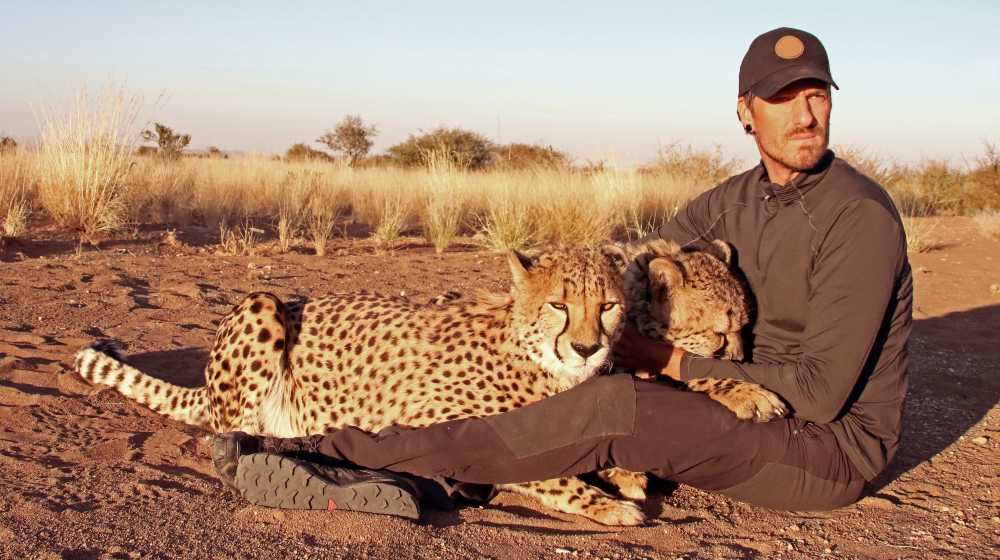
Before you go out in the woods, you should first master basic camping safety against wildlife attacks. Research shows that animal encounters are still “a considerable cause of human harm and death today.”
Arm yourself with these safety camping tips and enjoy a hazard-free time in the wild with your friends and family.
RELATED: 11 Tips to Avoid Animal Attacks
12 Camping Safety Tips Vs. Dangerous Wildlife
1. Choose a Safe Campsite
Camping safety starts with your choice of location. In choosing a campsite, consider the wildlife you may find on a particular spot.
Weigh the pros and cons. For example, camping by the lake makes you vulnerable to wild animals that frequent the area.
Tip: Stay away from bushes and keep your camp at least 200 feet away from the nearest water source.
2. Know Your Environment
Familiarity and knowledge of the area are a camping safety advantage. Proper information allows you to avoid dangerous spots frequented by wildlife.
You can gather valuable information from wildlife officials or local park rangers. Seeking out camping safety rules from locals in the area is also helpful.
3. Bring Camping Safety Gear
Camping safety gears could save your life against wildlife run-ins. Make sure that you bring these life-saving items before you go into the wild.
- Bear Spray – is a liquid-based animal repellent. It contains active stinging ingredients to ward off bears within the 30-feet range.
- Bear Safe – made from tough bomber polypropylene material, this safe will keep your belongings safe. It has a quick-opening mechanism that is impossible for bears or any animal to open.
- Bear-proof Cooler – keeps foods and beverages safe from wildlife. It can survive hours of bear manhandling and abuse without breaking.
- Bear Bag – lightweight and durable, a bear bag keeps your food safe from ursine scavengers. Hang it high on a tree branch and you're good to go.
- Hunting Rifle – The worst-case scenario is you will have to use a rifle to neutralize an attacking animal. Choose a rifle that has enough stopping power such as the 12-gauge Remington 870 or the Ruger Guide Gun.
Note: Make sure that your rifle is licensed and you bring the necessary papers.
- Gloves and Boots – A pair of gloves and boots is an effective protection against snakes. Make sure that you put them on all the time when you are in the woods.
- Anti-venom Shot – is a medication formulated with antibodies to treat snakebites. It is an indispensable camping safety item that you need to have in your bag.
- First Aid Kit – Never go out camping without this camping safety equipment. Learning how to set up a basic DIY first aid kit is a must!
4. Store Your Food Well
Food is an instant magnet for wild animals. They can pick up the scent of a camp meal as far as 12 miles away.
Proper food storage is one of the best camping food safety tips to keep wildlife away from your campsite. These are important pointers in storing food in the wild:
- Store food in airtight canisters.
- Lock your food containers inside an animal-proof cooler.
- Keep food supplies away from your living quarters
- Dispose of food scraps on Ziplock bags or any airtight containers
5. Keep Your Trash Safe From Animals
Aside from food, trash also attracts wild animals. Keep your campsite clean and make sure that you store your trash well.
Here are some trash storage tips for your camping safety:
- Store food remnants and other waste in airtight plastic bags.
- Double wrap your waste in durable odor-proof bags.
- Hang your trash on a tree branch at least 10 feet high off the ground.
6. Keep Your Camp Odor-Free
Food and waste are not the only items that attract wild animals. The scent of toiletry items such as soap, toothpaste, and deodorant can also attract them.
Again, use airtight storage units to make your camp odor-free. Store these containers away from your sleeping quarters or hang them high up on a tree branch.
7. Use Natural Animal Repellents
Natural animal repellents are effective in warding off wildlife. You can find these items in your household:
- Garlic Cloves – are effective repellents for mosquitoes, raccoons, and various rodents.
- Ground Coffee – aside from helping you stay alert, coffee grounds also repel mosquitoes.
- Cinnamon and Cloves – snakes hate the scent of cinnamon and cloves.
- Noise – making loud noises is another effective means to deter wild animal invasion.
- Flashing Lights – repel bears, wild cats, and other nocturnal animals by flashing your emergency lights.
8. Maintain Safe Distance
Keep in mind that animals in general only attack when provoked or threatened. Maintaining a safe distance away from these creatures is a proven camping safety measure.
Safe distance differs depending on the animal species. For bears, at least a hundred-yard distance is safe enough while for other wildlife, 25 yards would do.
Tip: You are too close if an animal moves away because of your presence.
RELATED: Wild Animal Attacks | What To Do When Attacked By Ferocious Beasts
9. Ensure Camping Safety for Kids
Small children are the most vulnerable target for predators in the wild. Make sure that they always wear proper camping safety gear such as gloves and boots.
Always keep them near adults and at a safe distance. Make sure that they are also well-oriented on basic camping safety measures.
10. Keep Pets on Safe Holding Areas
Pets like your dogs and cats are also prime targets for wild animals. They could wander off the camp and attract predators and lead them to your area.
Putting your pets on a leash or holding them in cages, is an effective means to keep them safe. You can also use a spiral stake to grant your dogs some freedom while still keeping them at a safe distance.
11. Change Your Cooking Clothes
Hours after cooking, the scent of food will still linger on your clothes. Sleeping with your cooking clothes is a potential danger.
The smell could attract bears and other wild animals. Avoid this by storing your cooking clothes in airtight bags or containers.
12. Keep Your Area Clean
Always maintain cleanliness at your campsite. Campers often overlook this simple camping safety practice.
By keeping your area free of waste, you lower the chances of making it a target for wild animals. Make cleaning a daily habit when you are in the wild.
Here’s an infographic guide. Don’t forget to download, save, or share this handy infographic for reference:
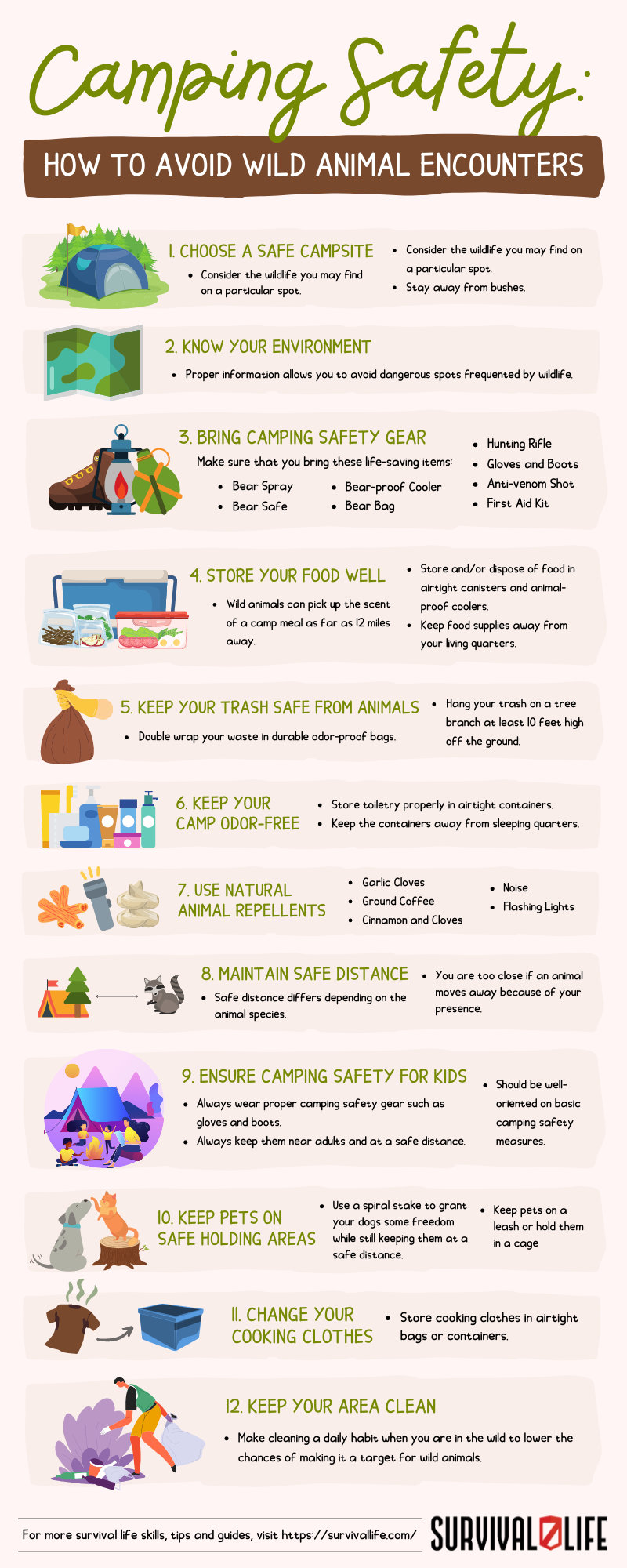
Need more camping safety tips? Check out this “Avoiding Animals While Camping” vid by JupiterHikes:
Understanding how wildlife behaves in their natural habitat is key in camping safety. With these tips, you will have the advantage of dealing with dangerous situations in the wild. Have a fun and safe camping experience!
[poll id=”118″]
What’s your scariest wildlife encounter? We would like to know more about your adventure in the comment section below!
Up Next:
- 8 Uncommon Prepping Supplies You Can Use In The Wild
- Packing the Ultimate Survival Kit for One’s Survival
- 26 Badass Camping Hacks For Your Next Trip
Calling all preppers, craftsmen, bushmasters, outdoorsmen, and all-around skilled people, Survival Life needs YOU! Click here if you want to write for us.
Don’t forget to stay connected with us on Facebook, Twitter, Pinterest, and Instagram!
-

 Paracord Projects1 year ago
Paracord Projects1 year agoParacord Projects | 36 Cool Paracord Ideas For Your Paracord Survival Projects
-

 Paracord Projects2 years ago
Paracord Projects2 years agoHow To Make Paracord Survival Bracelets | DIY Survival Prepping
-

 Medical Care1 year ago
Medical Care1 year ago21 Home Remedies For Toothache Pain Relief
-

 Knife Laws1 year ago
Knife Laws1 year agoAre Switchblades Legal? Knife Laws By State
-

 Do It Yourself2 years ago
Do It Yourself2 years agoSurvival DIY: How To Melt Aluminum Cans For Casting

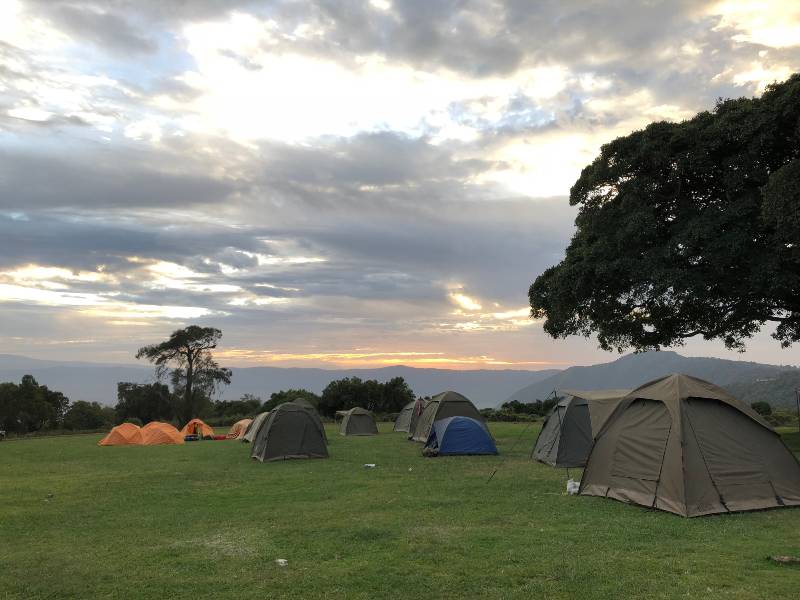


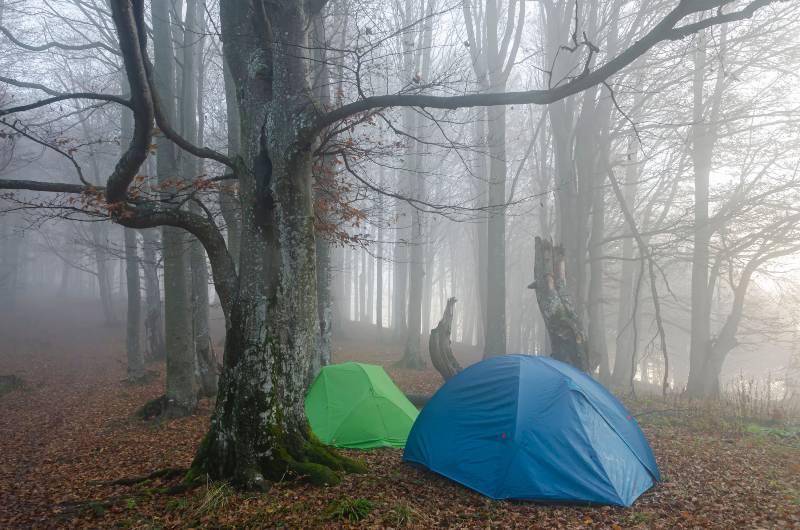
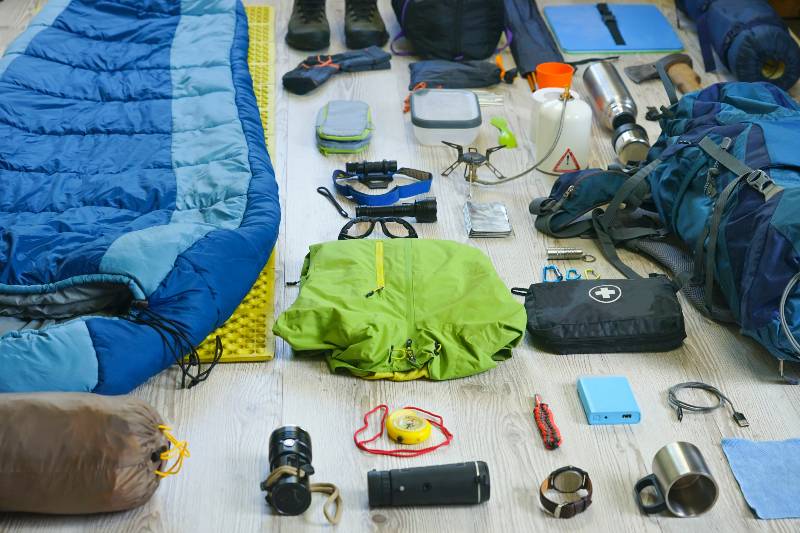

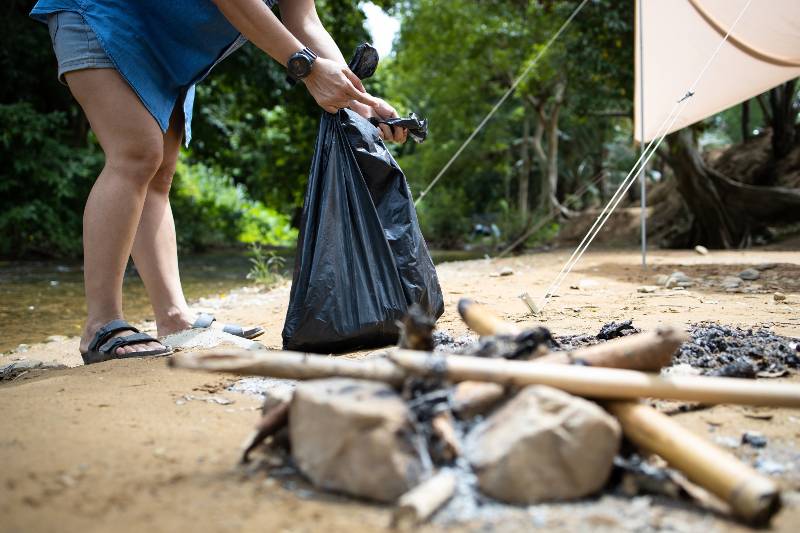

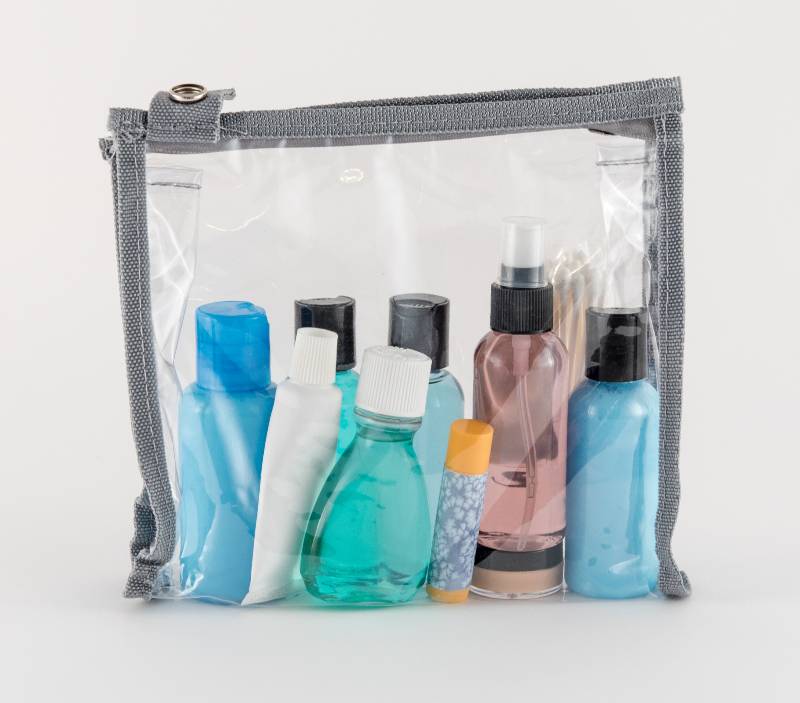

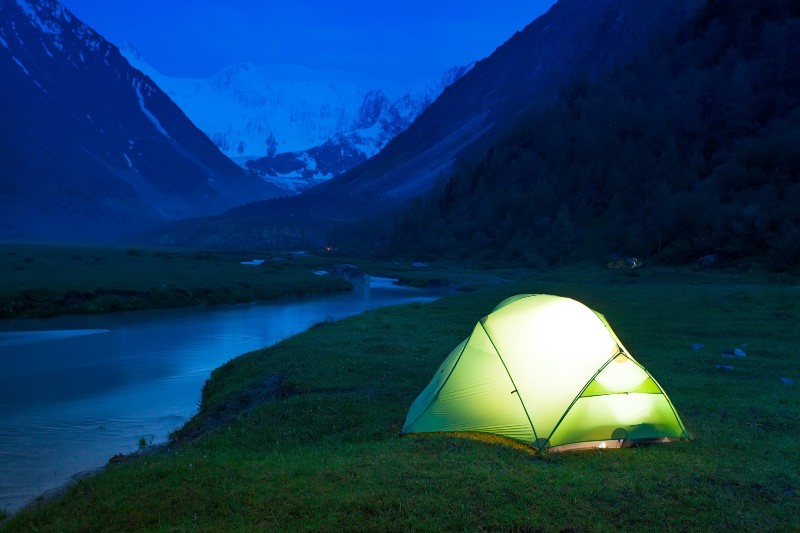
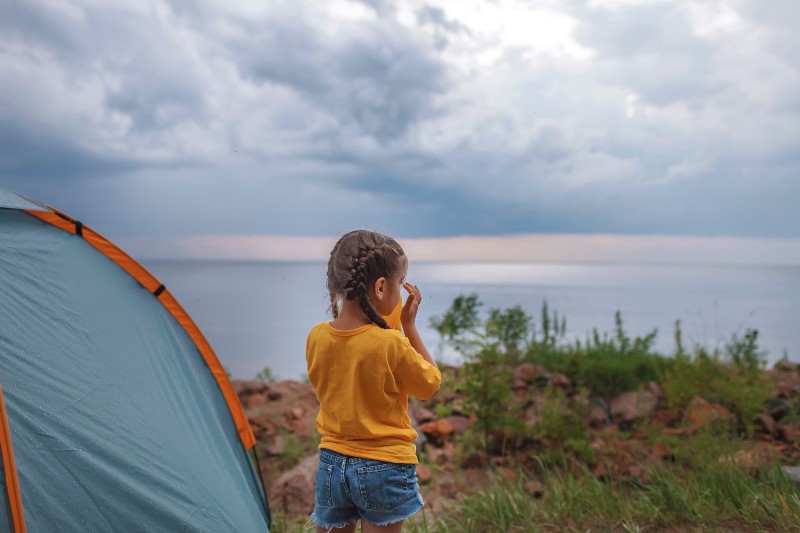
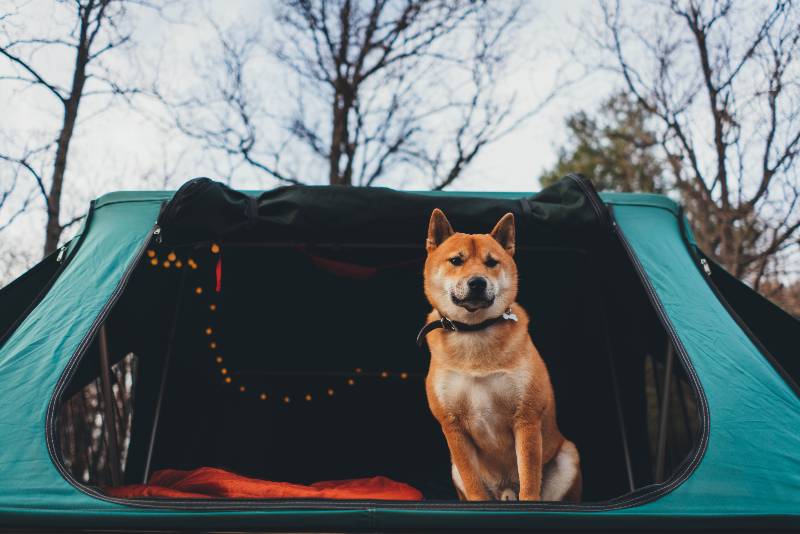
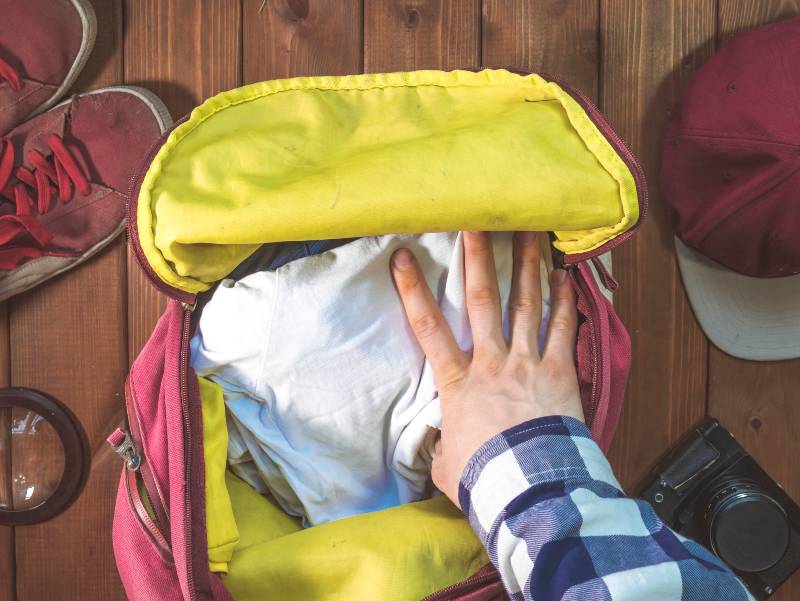
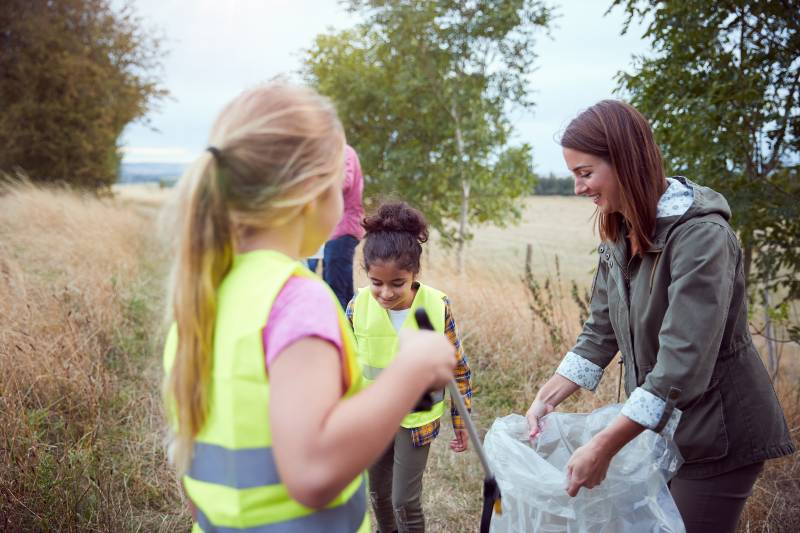

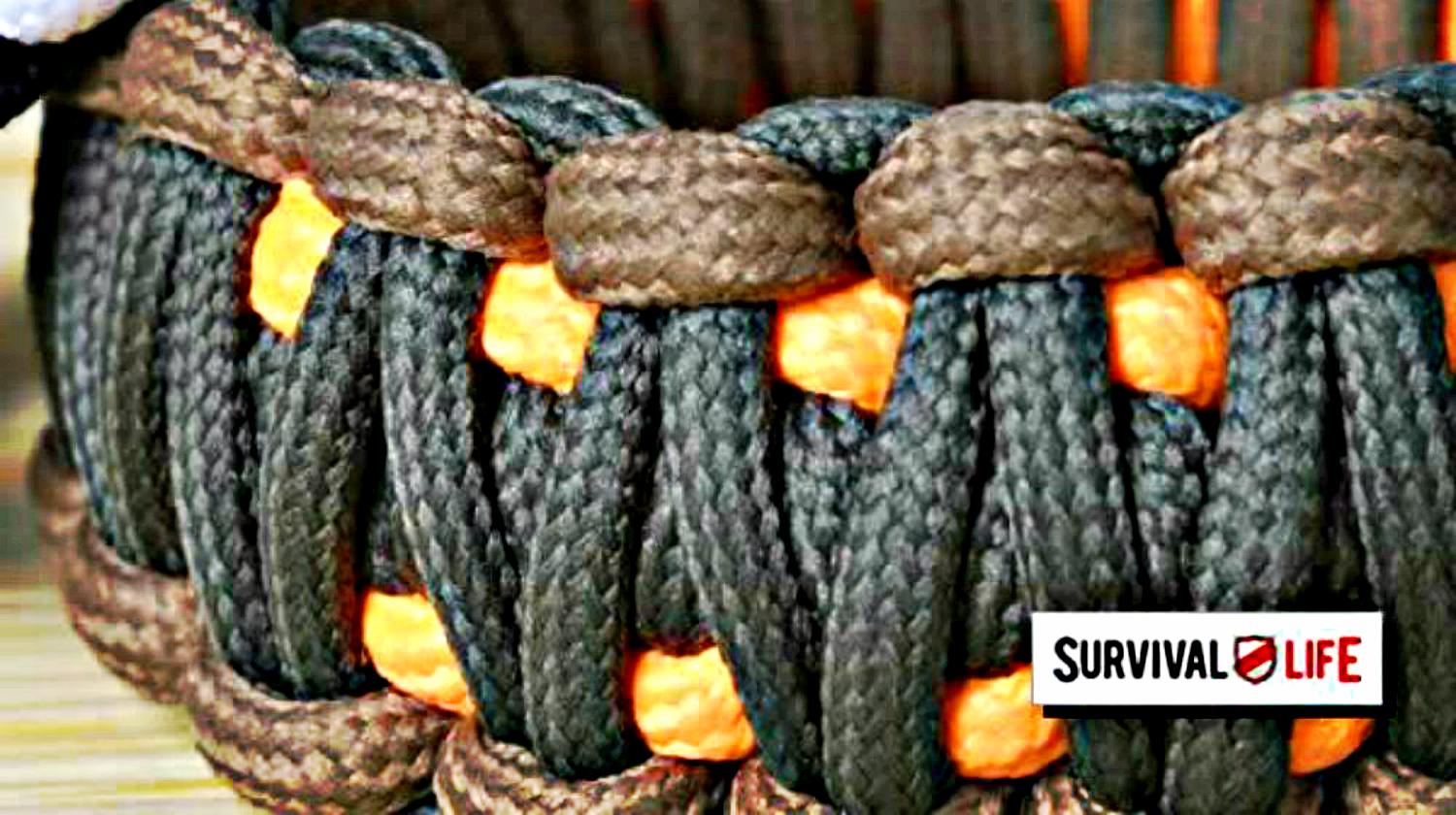




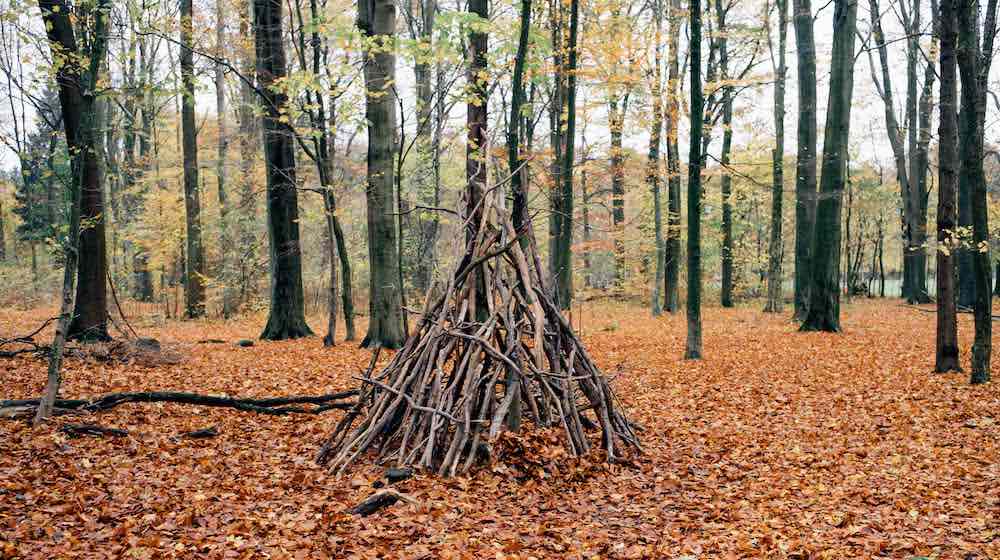


You must be logged in to post a comment Login